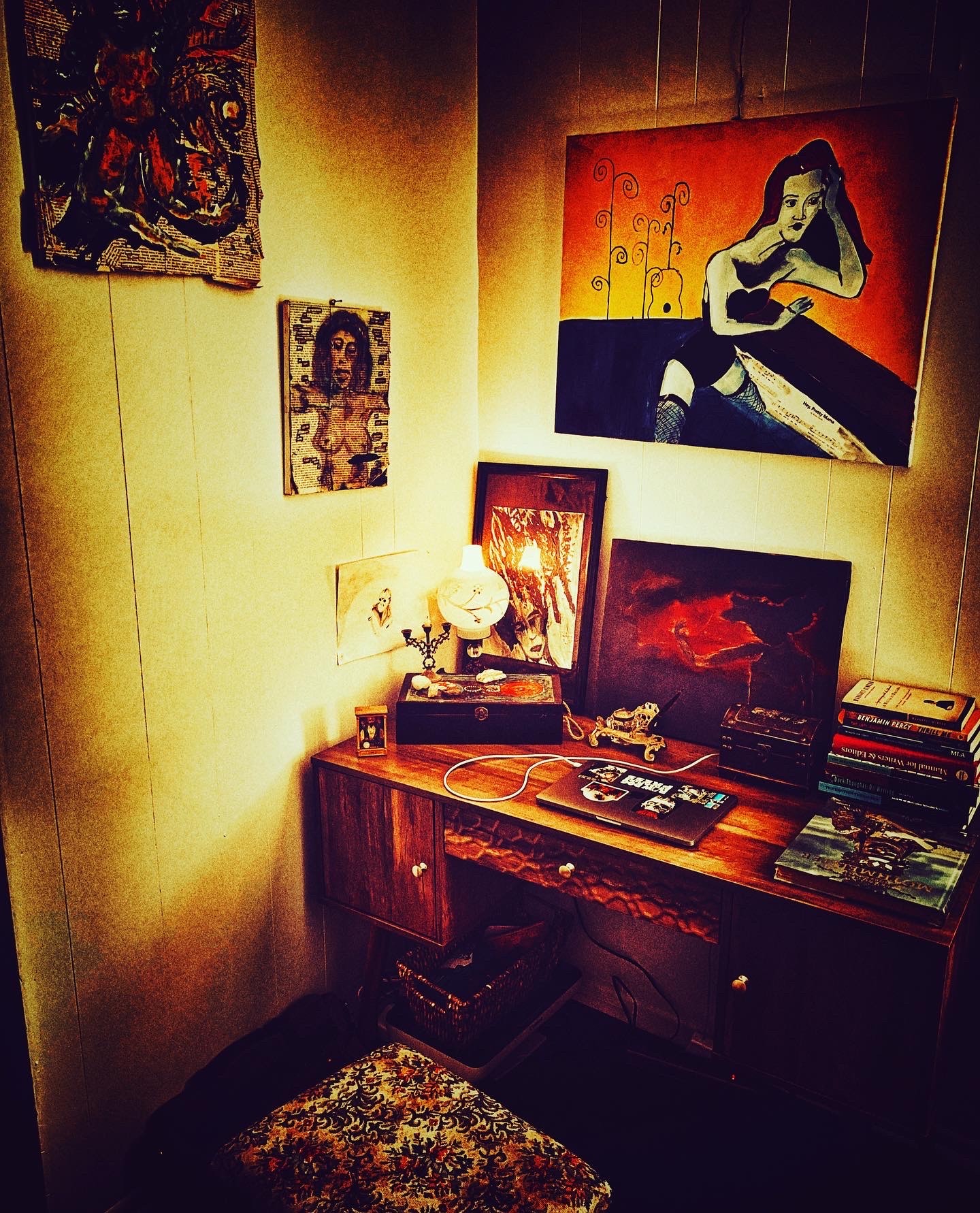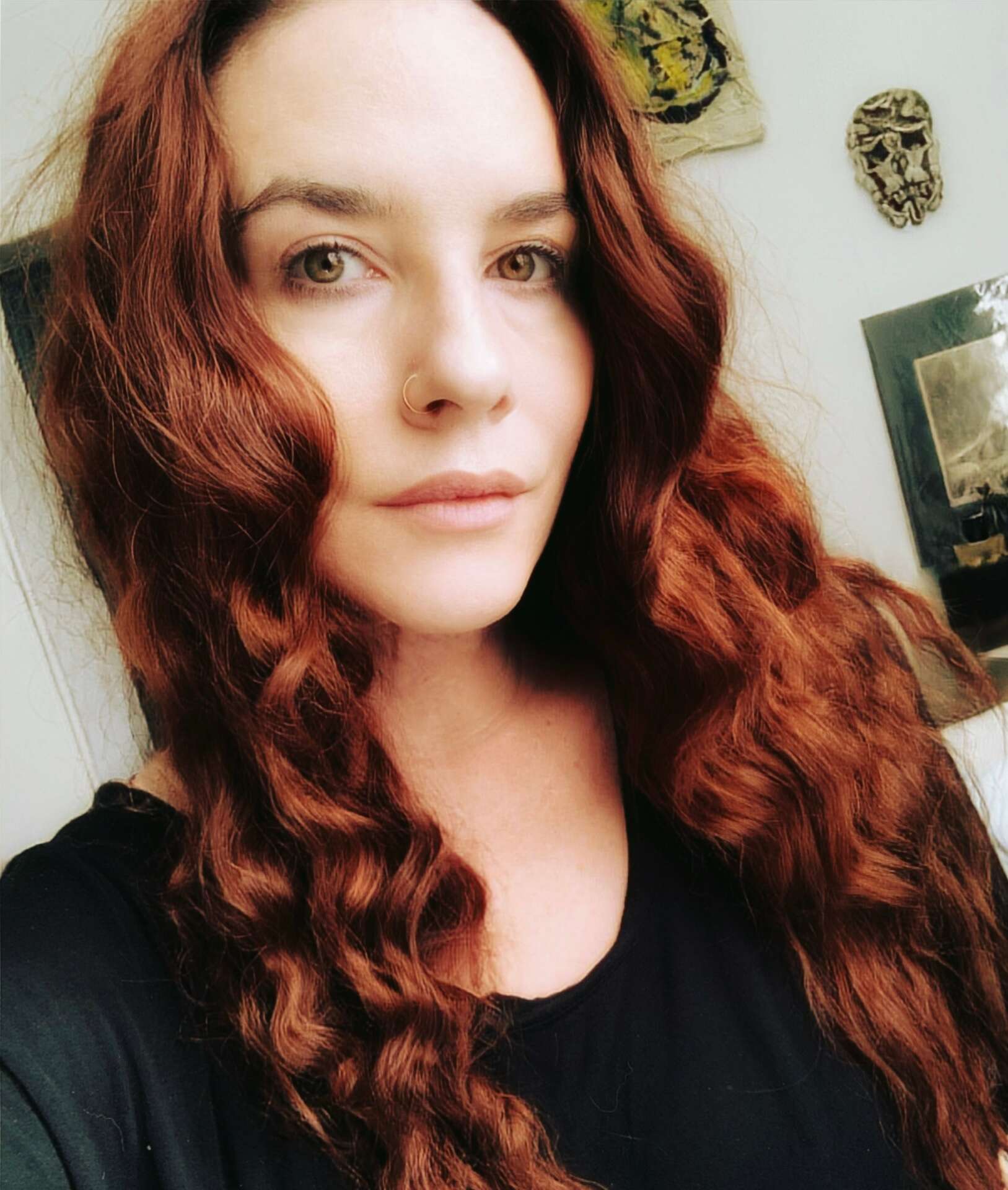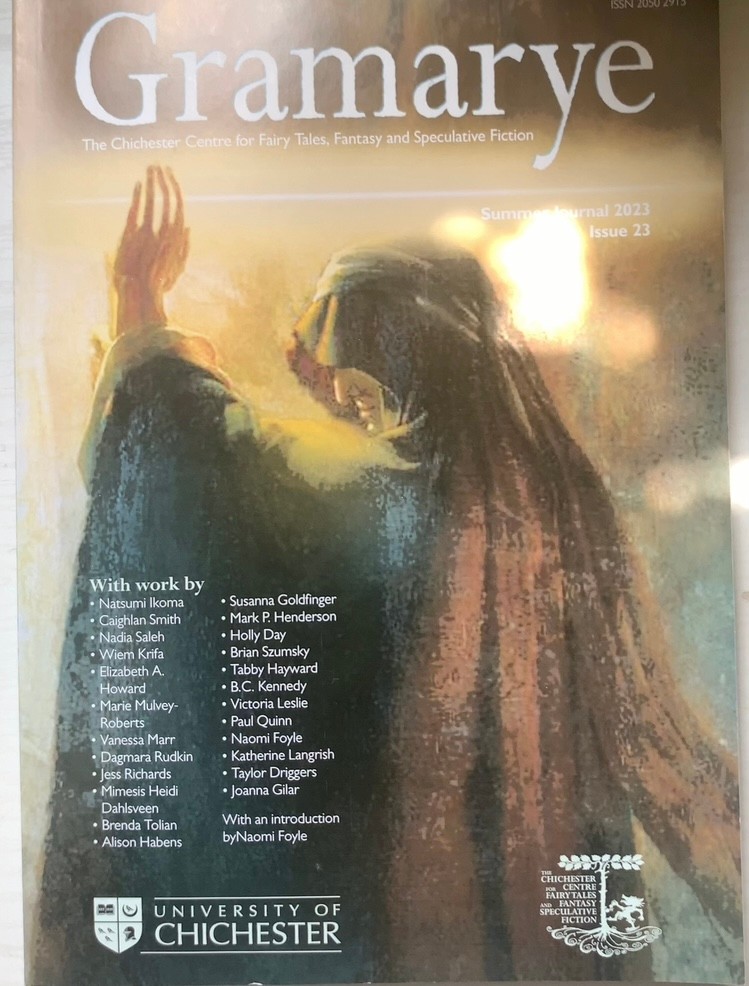We caught up with the brilliant and insightful Brenda Tolian a few weeks ago and have shared our conversation below.
Brenda, thanks for joining us, excited to have you contributing your stories and insights. Let’s start with important influences in our lives. Is there a historical figure you look up to?
During my B.A., my professor introduced me to the work of Angela Carter in the form of her collected work, The Bloody Chamber. Carter’s ability to use the gothic, visceral, grotesque, erotic, beautiful, and elements of wonderment to command the framing of female desire, agency, and sexuality, and subversion of the societal expectations of the feminine is unparalleled. She explored the body and the unspoken and often unexplored internal raw workings of the female mind and soul. I never felt so suddenly understood more than when I read Carter’s work. I grew up wanting the fairy tale, but as Carter described in her work, it is not the knight who saves— more often, it is the mother, sisters, daughters, and ourselves who do the hard work of salvation. She expressed themes of agency through her writing that felt to some readers transgressive, but for me, it was as accurate as a razor blade. Carter did not waste a page, and reading her work is akin to diving into water that glimmers before it darkens and then glows in stark bioluminescence at the bottom. Some would say it’s a dead place— for they will never understand it. Others discern the symbology imprinted, the details of figurative language, colors, and richness of her clarity and rich abstract storytelling. Carter was a mother, a teacher, and a courageous writer, traits I admire. I hope my writing can someday come close to hers in the soul-singing messages that reverberate throughout her pages. I hope to write stories that always feel new no matter how many times they are read. I also hope as a teacher that I have some sliver of impact on students as her work has had on my own journey of knowledge.

Brenda, before we move on to more of these sorts of questions, can you take some time to bring our readers up to speed on you and what you do?
I am a mother, scholar, researcher, writer, and teacher. I write out of compulsion, wonderment, courage. Humans are not immutable; they are capable of tremendous change, and part of this is wisdom and a lifelong desire for learning. The world has changed for my daughters. It is a far cry from the world I grew up in. This generation, and I fear the ones to come, face constriction and silencing as never before. It is the world Margret Atwood and George Orwell warned us about. The water boils, and the mountains burn with unchecked climate change, which, for the most part, rages in a world that is ruled by impotent leaders. Writing for me is an act of provocation and oftentimes transgression because I am not okay with the mediocre or what society says is the norm. I am not okay with silencing women, LGBTQ+A, and POC. I am not okay with being told what I can or can’t do with my body, mind, and soul. You cannot legislate me into compulsion when my daughter’s future is on the line. So, I look at the act of writing right now as a form of protest against those forces. I write to make others think. I teach to help others to think, learn, and act. As a writer and as a teacher, I must tell you that your story matters and your journey. There are endless ways to tell, express, and show engagement with the world. Small acts that build up over time might compel positive change, even in the face of terrible adversity. Writing is covert resistance against injustice in the world from memoirs, letters, fiction, poetry, and non-fiction. The words can be gentle or abrasive, subversive or transgressive, but no matter what your words are, your story holds power.
My book Blood Mountain from Raw Dog Screaming Press was an act of resistance. I got the education and mentoring that had, until then, eluded me. I’m working on my doctorate now; a book of poetry is in the works, and a non-fiction manuscript is near completion. I’m sure no one expected this of a single mom. I have known homelessness, and my family has known trauma, but somehow, this made us more resilient. My story is not remarkable. So many live similar lives and have walked similar journeys. Our experience can pave the way to change. We can change the narrative.

Is there a particular goal or mission driving your creative journey?
For me, it is ongoing education and learning about the business aspects of education and the publishing world. Money influences both worlds; if you want to succeed, you must be wise. Who is lobbying in Washington to change education in the negative ways we see currently? Follow the money, and there you will find foundations and philanthropists doing everything in their power to influence learning to create agreeable workers, division, segregation, and continued oppression. I learned about the systems at play in schools of higher learning, but anyone can do the research. We should understand what forces out there are willing to spend the money to rob our children and society of the hard-learned truths of science, literature, and history because a citizenry that forgets is bound to repeat the traumas and oppression of the past.
I see the publishing world in much the same way, especially the bigger conglomerates, but this does not excuse the smaller indie presses, which are seeing a rise in prominence and influence in what and how people read. More voices are needed: the POC voices, the voices of LGBTQ+A, the voices of women, and voices from repressed regions, and voices that are not the aging white males who have for too long and still dominate the market. I don’t think room needs to be made at the table—I think it needs to be flipped and danced upon.

Looking back, are there any resources you wish you knew about earlier in your creative journey?
For me, it is ongoing education and learning about the business aspects of education and the publishing world. Money influences both worlds; if you want to succeed, you must be wise. Who is lobbying in Washington to change education in the negative ways we see currently? Follow the money, and there you will find foundations and philanthropists doing everything in their power to influence learning to create agreeable workers, division, segregation, and continued oppression. I learned about the systems at play in schools of higher learning, but anyone can do the research. We should understand what forces out there are willing to spend the money to rob our children and society of the hard-learned truths of science, literature, and history because a citizenry that forgets is bound to repeat the traumas and oppression of the past. I see the publishing world in much the same way, especially the bigger conglomerates, but this does not excuse the smaller indie presses, which are seeing a rise in prominence and influence in what and how people read. More voices are needed: the POC voices, the voices of LGBTQ+A, the voices of women, and voices from repressed regions, and voices that are not the aging white males who have for too long and still dominate the market. I don’t think room needs to be made at the table—I think it needs to be flipped and danced upon.
The richest resource you have as a writer is the community of writers. I think of Hillary Leftwich, Joy Yehle, Jay Halsey, Gabino Iglesias, Dr. David Hicks, Josh Malerman, Jon Bassoff, Jennifer Barnes, and John Lawson, and so many others who have given advice and support from first eyes on a manuscript to blurbs and faith when you might have very little. Mentors who have years in the business and craft like mine—Mario Acevedo and Stanley Wiater, who read, counseled, and supported my writing with wisdom are irreplaceable. Find yourself a Mario or Stanley, and you will learn the tools of the craft that will follow you all of your days.

Contact Info:
- Website: https://brendatolian.com
- Instagram: bstolianwriter
Image Credits
Brenda S. Tolian.


